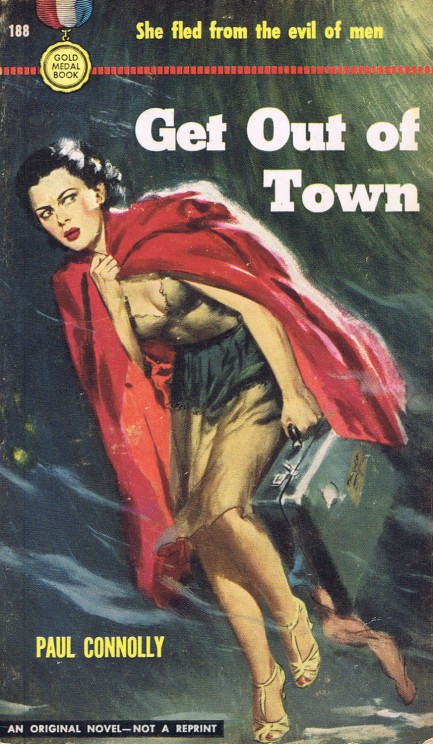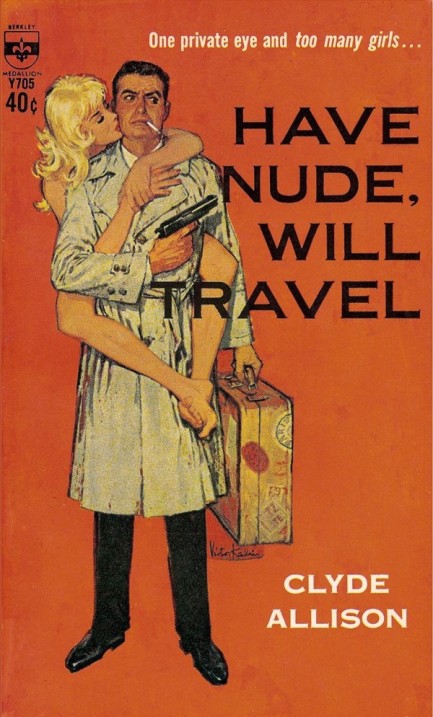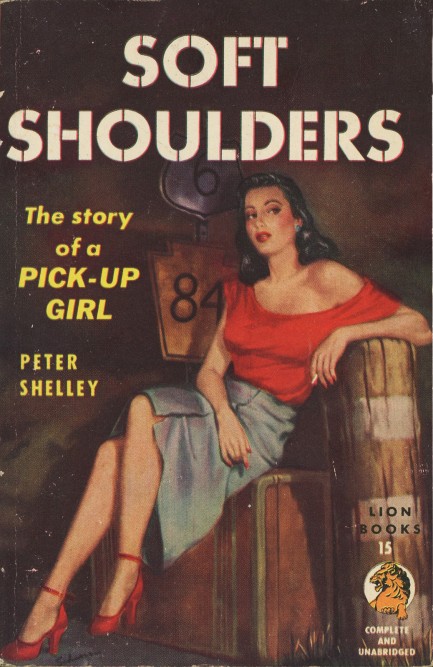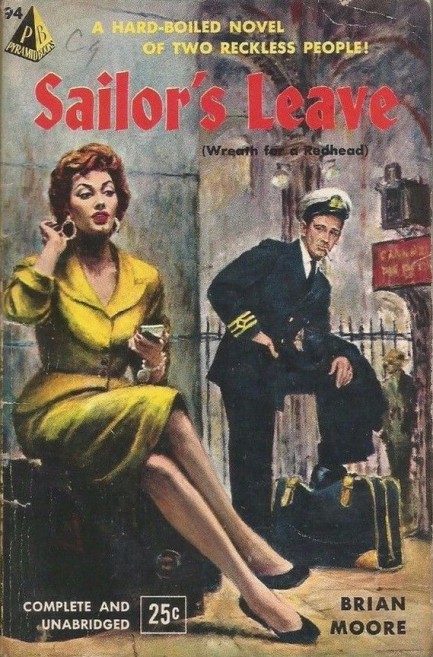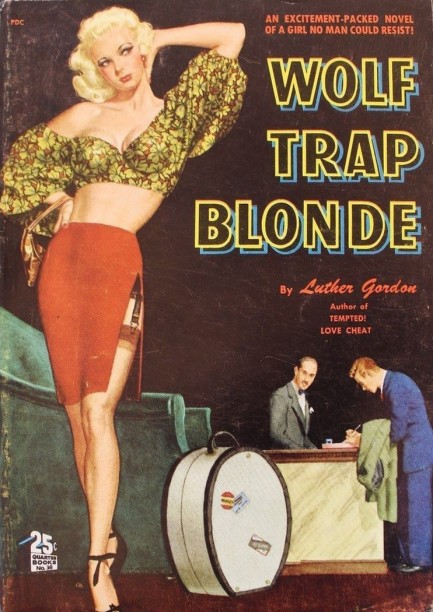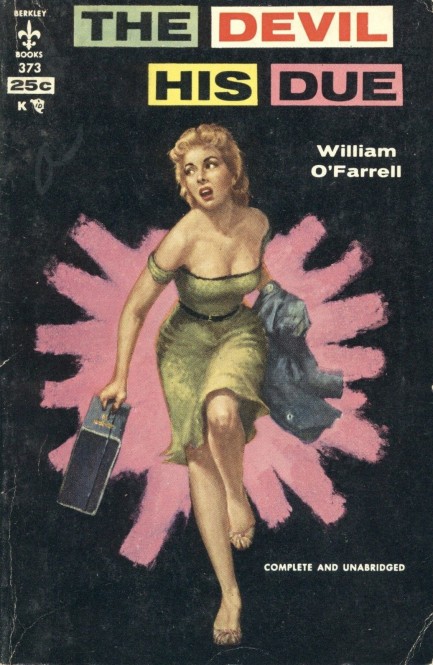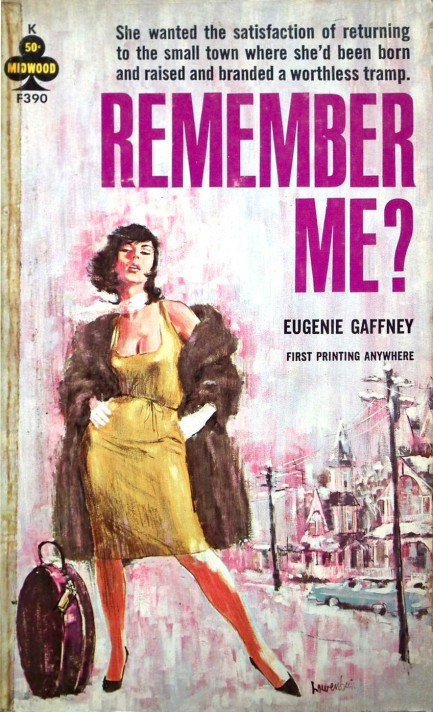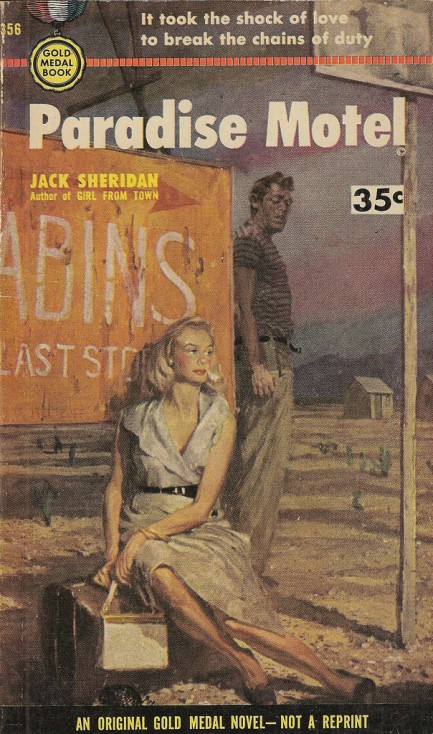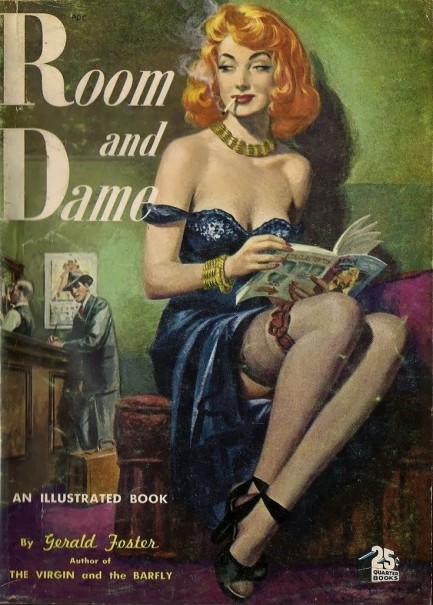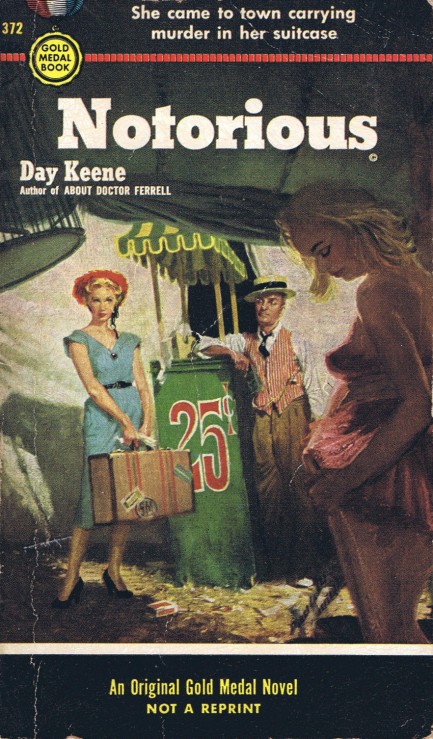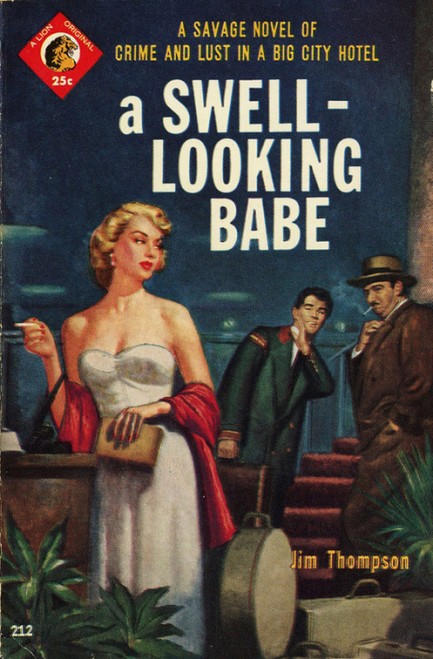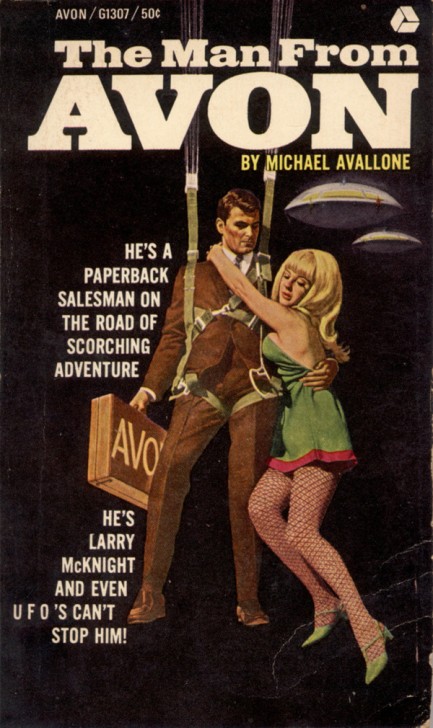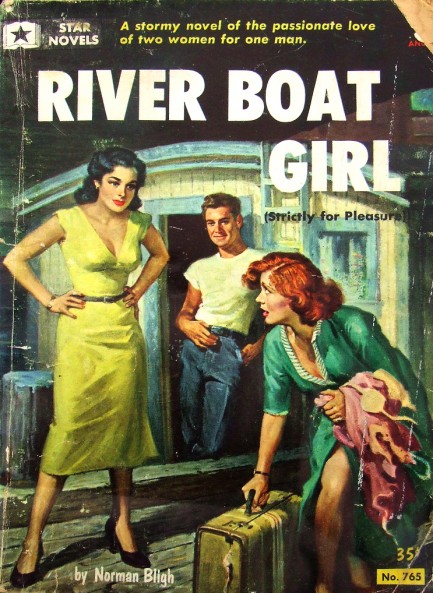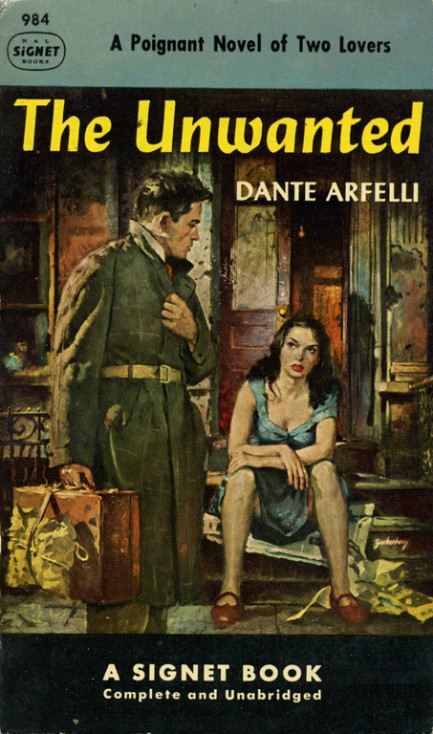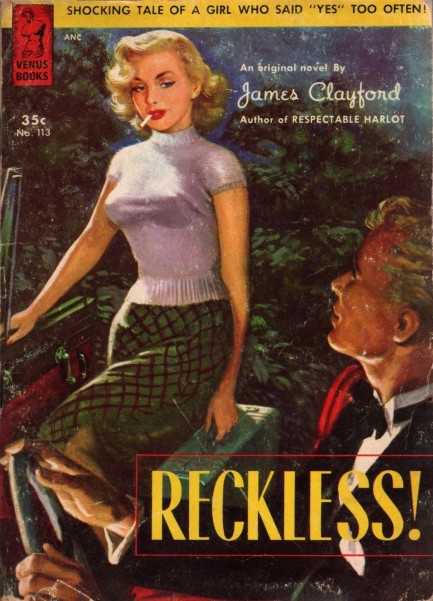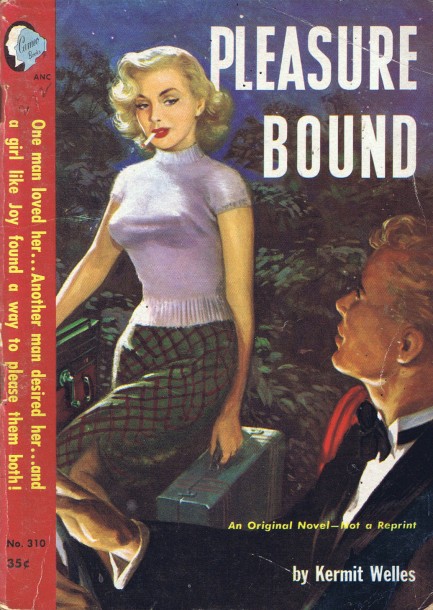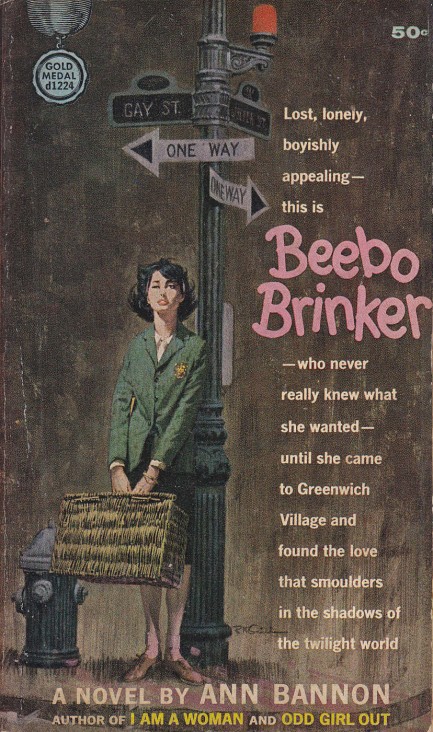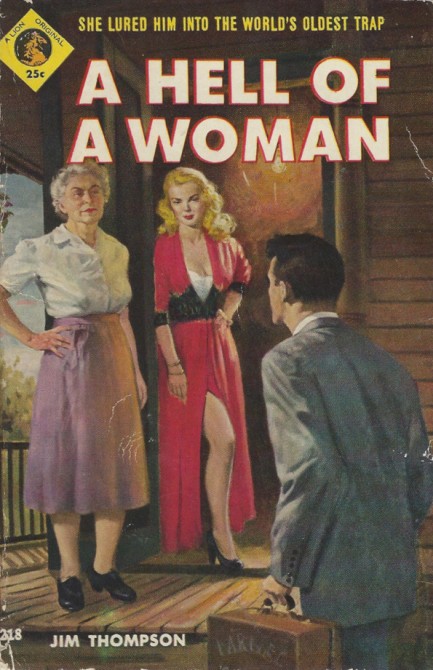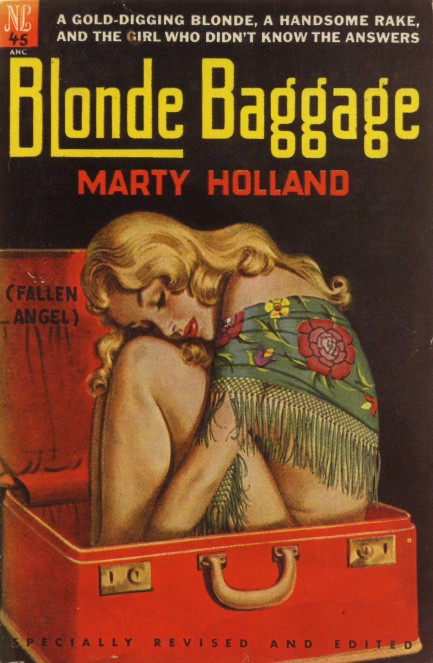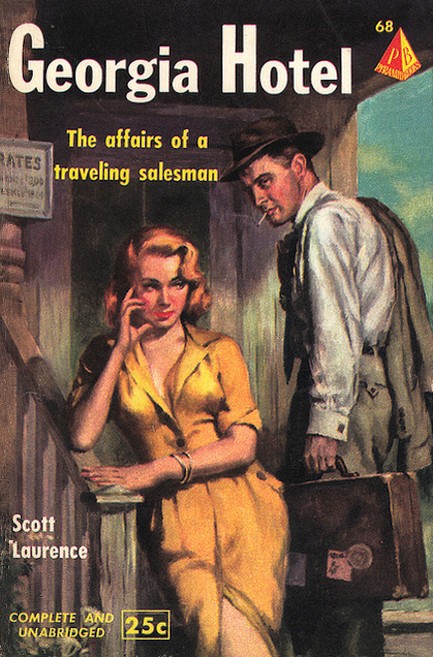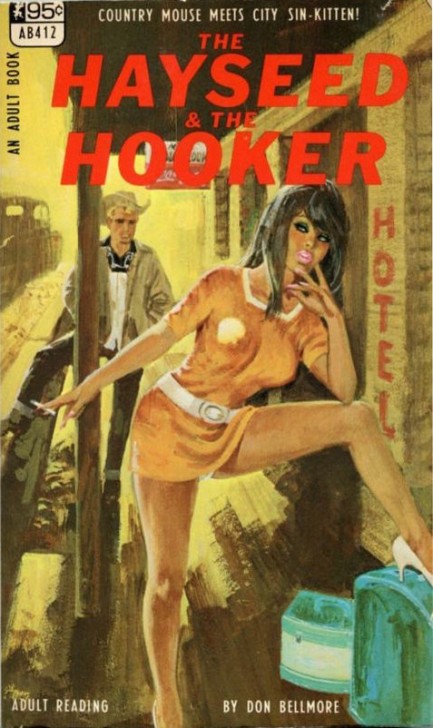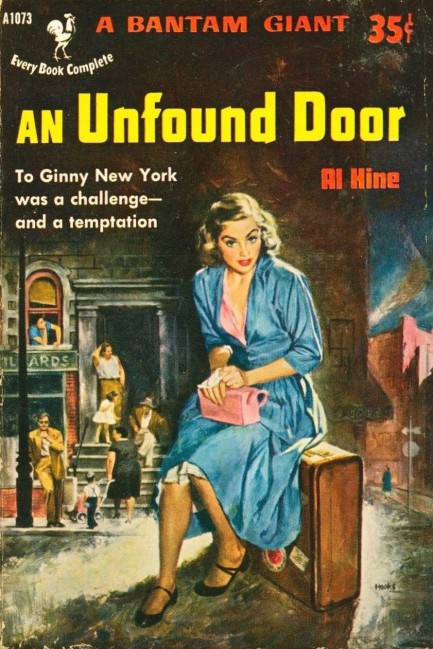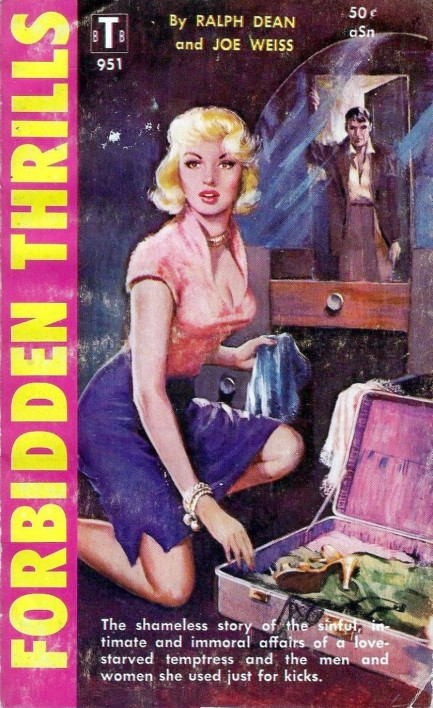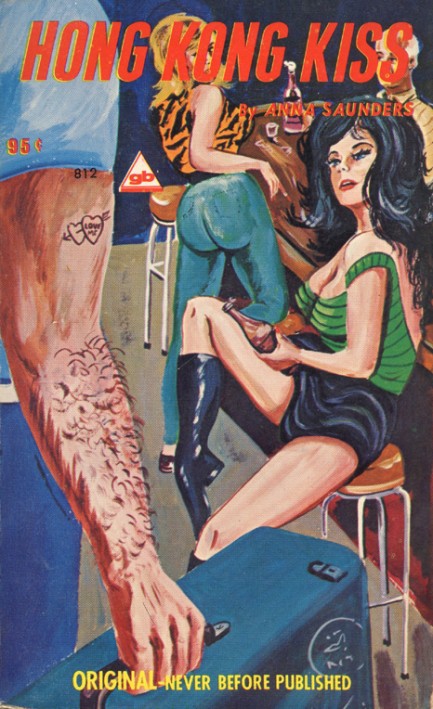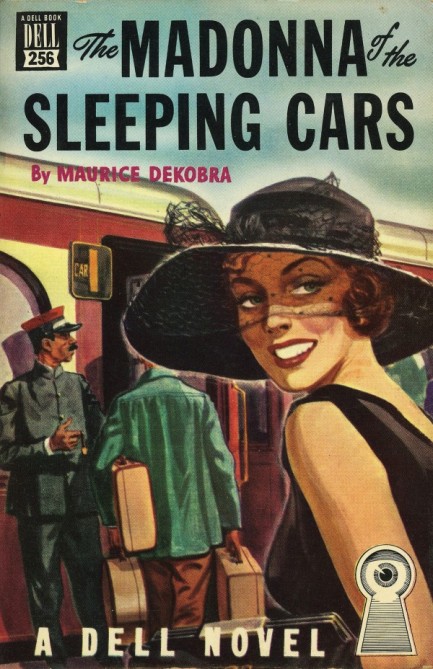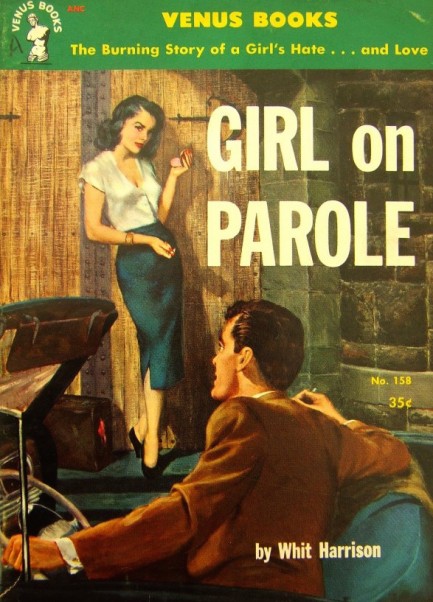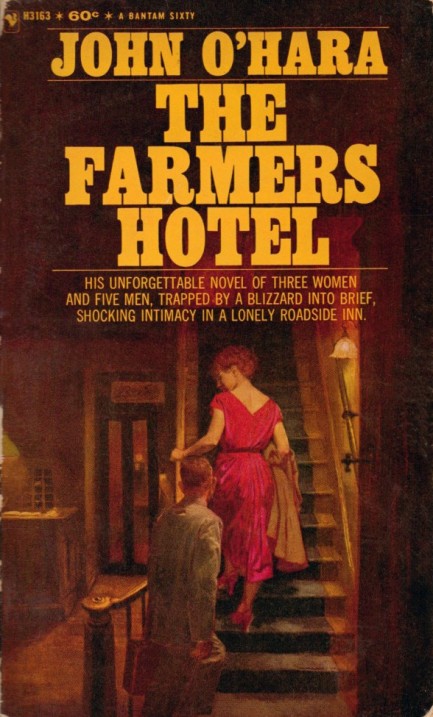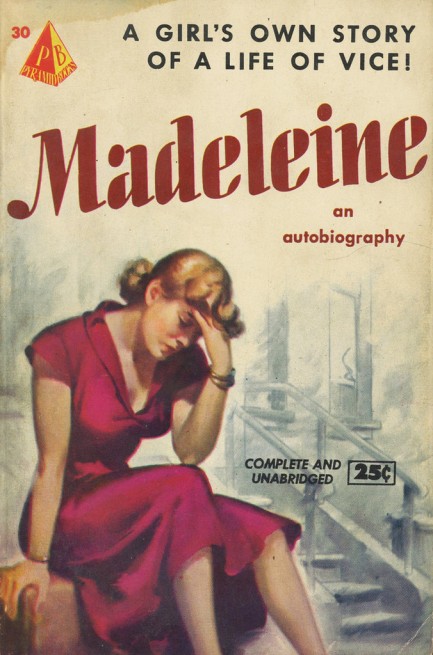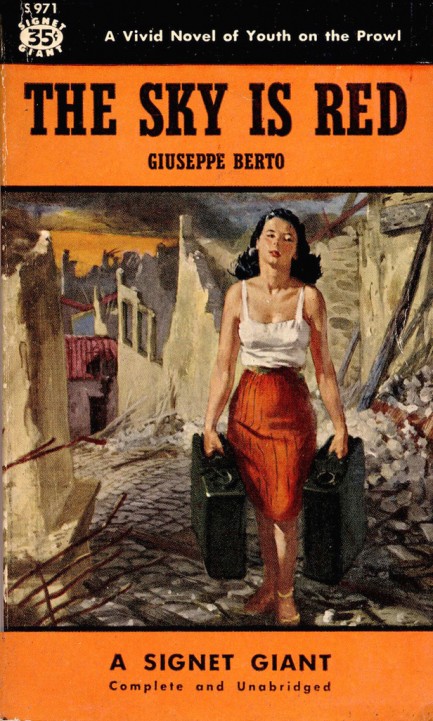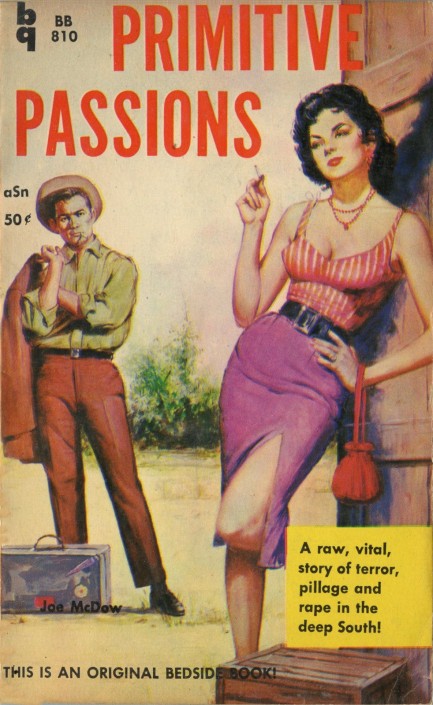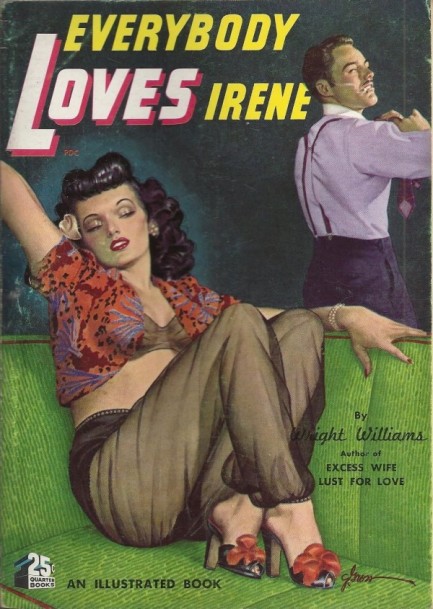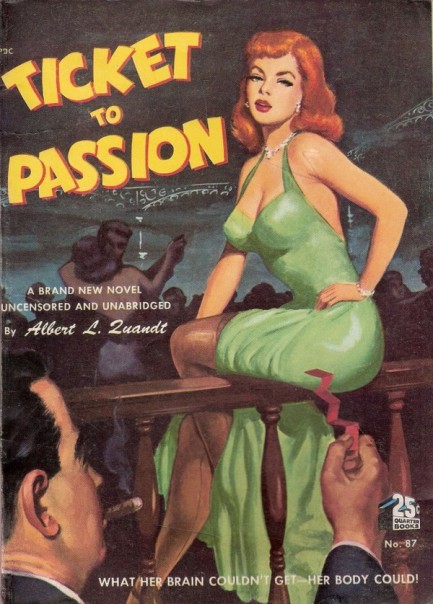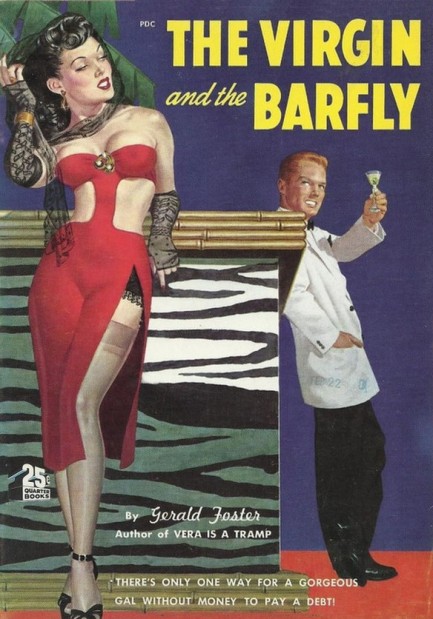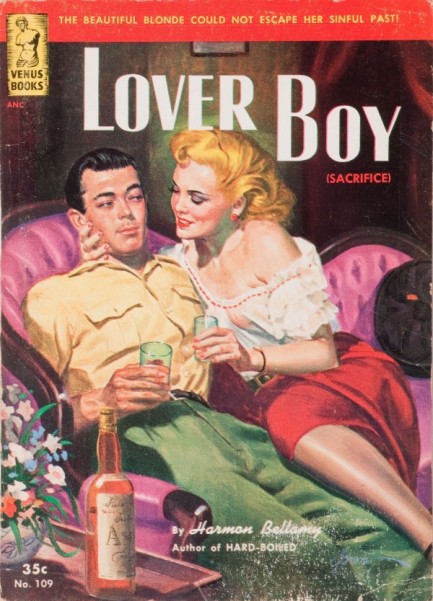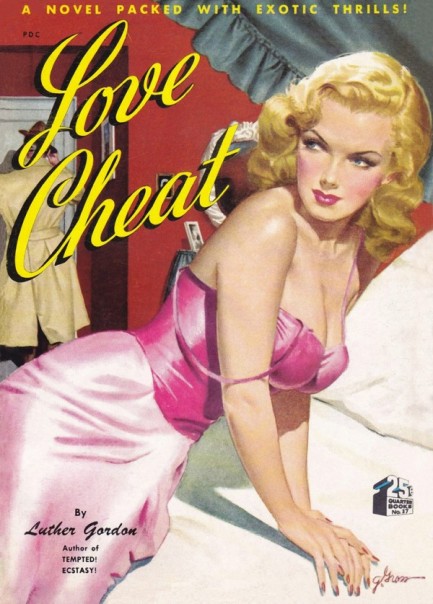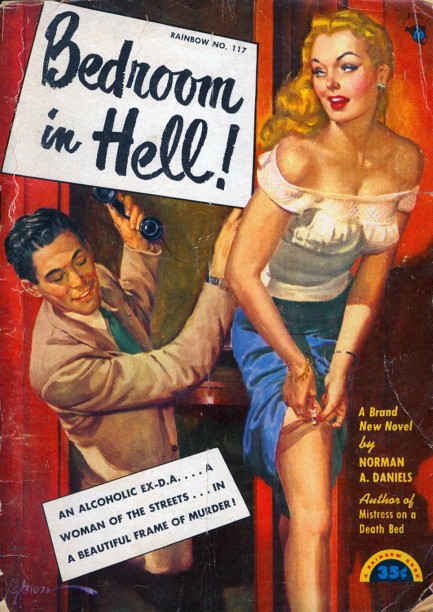 Free and easy is the basic package. I'm the VIP package and I cost a bundle. 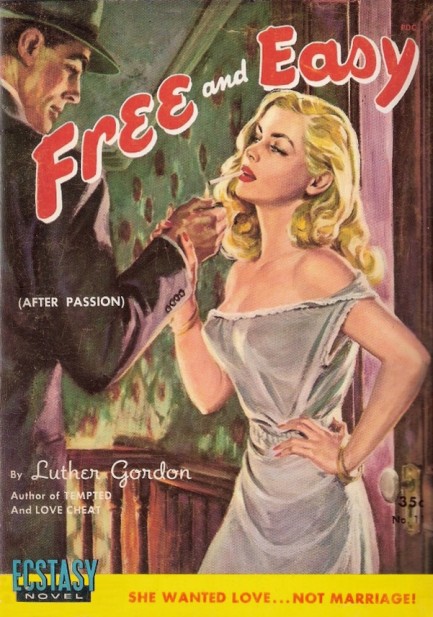
Above is another great paperback digest cover by Howell Dodd, this time for 1951's Free and Easy by Luther Gordon—no relation to June Wetherell's Free and Easy. Thinking about seeing a book rack with this kind of material for sale can only make you regretful to have missed out on the era. Though to be honest, you couldn't pay us to live in 1951—no offense to those who did. We love the promo art, the fiction, and the movies, but everything that has to do with real life... we wouldn't have done so well with that. So we're happy here in 2021. We'd like to own more of these old digests, but they aren't free or easy either. Our collection grows monthly, though. We have no idea to what end, but it does. But this one did not add to the clutter, because we borrowed it from online. More digests to come.
 There's nothing quite like a roll in the hay. 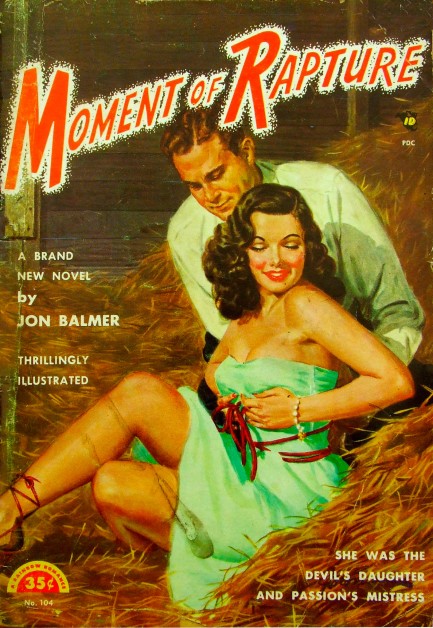
You'd think we'd eventually run out of themes in mid-century paperbacks, but the possibilities are seemingly endless. We can add illicit love in the hayloft to the many other time honored subjects exploited by paperback publishers. We've already shared several covers along these lines, such as this one, this one, and this one, but today we have an entire set for your enjoyment. Personally, we've never had sex in a hayloft—in fact, we've never even had the opportunity—but we imagine that once you get past the smelly manure and the scratchy hay and the jittery animals it's pretty fun. Or maybe not. There are also numerous books, incidentally, that feature characters trysting by outdoor haystacks, but for today we want to stay inside the barn. Thanks to all the original uploaders of these covers. 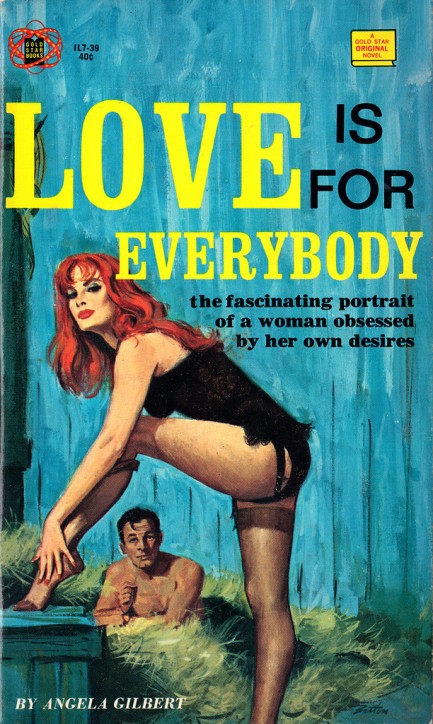 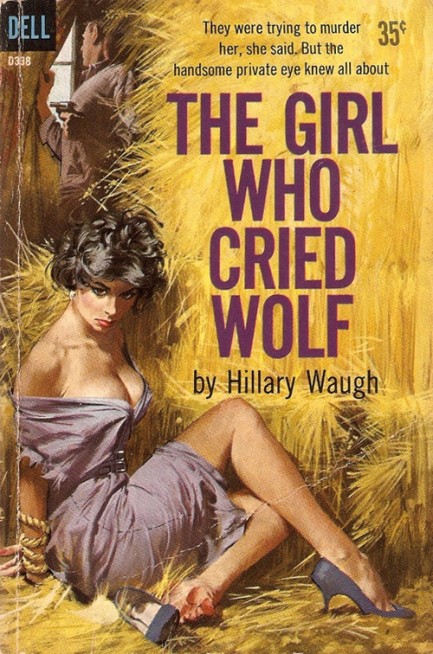 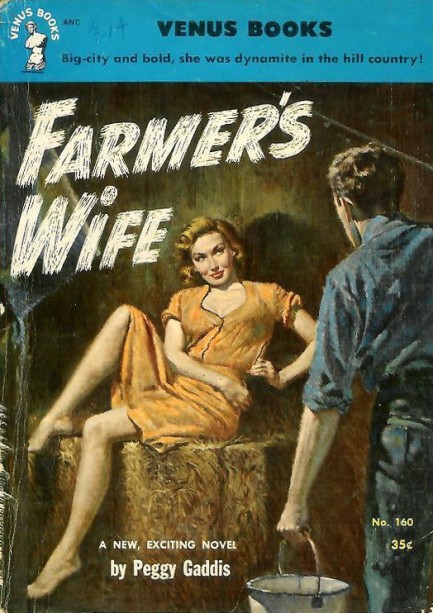 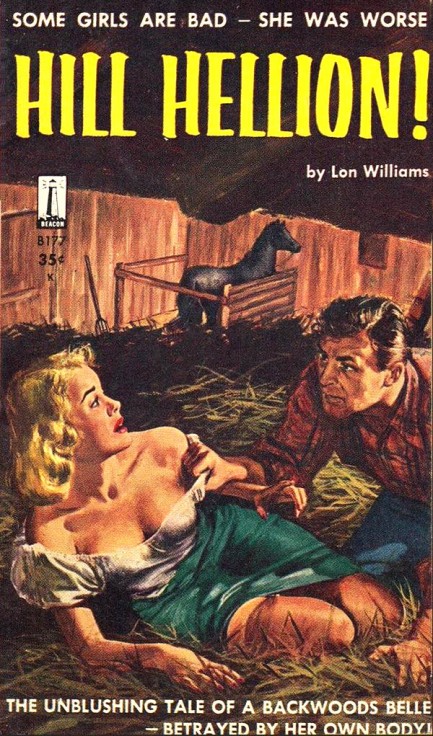 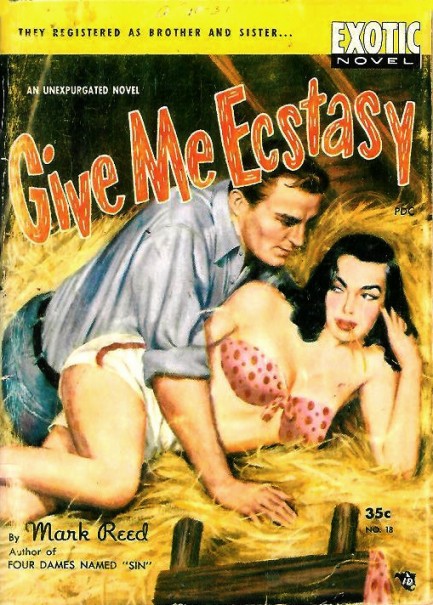 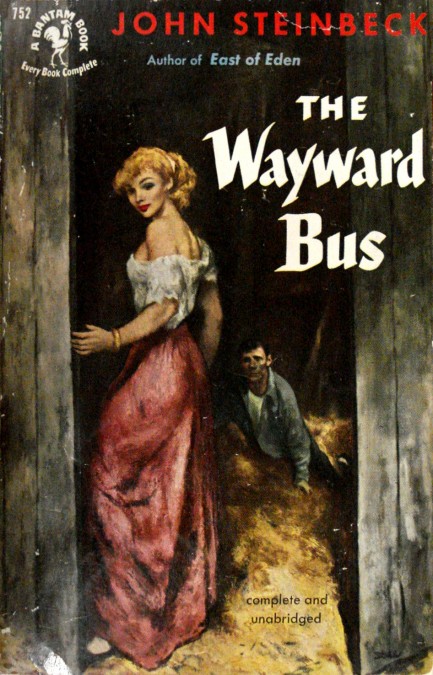 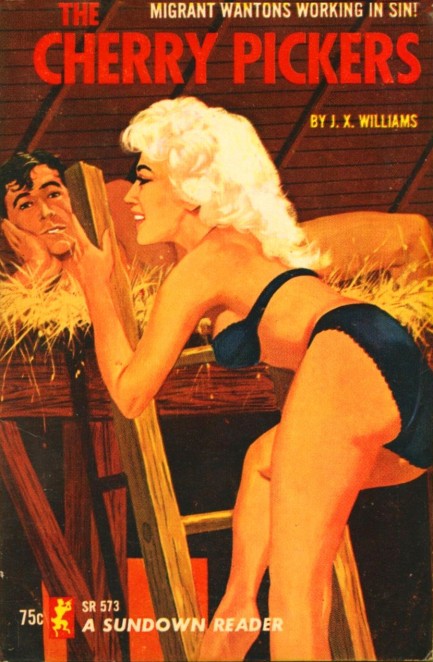 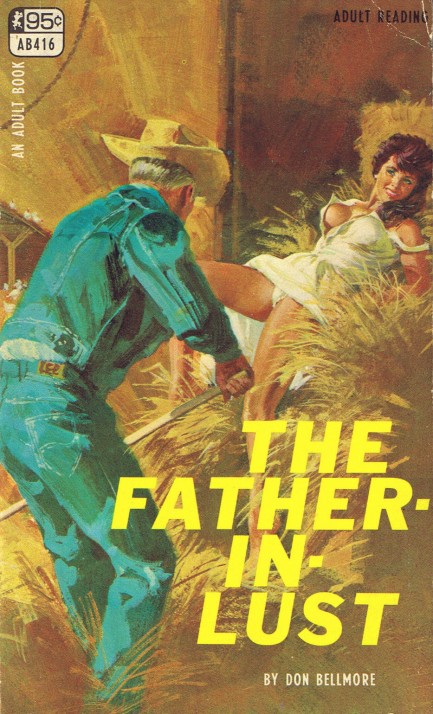 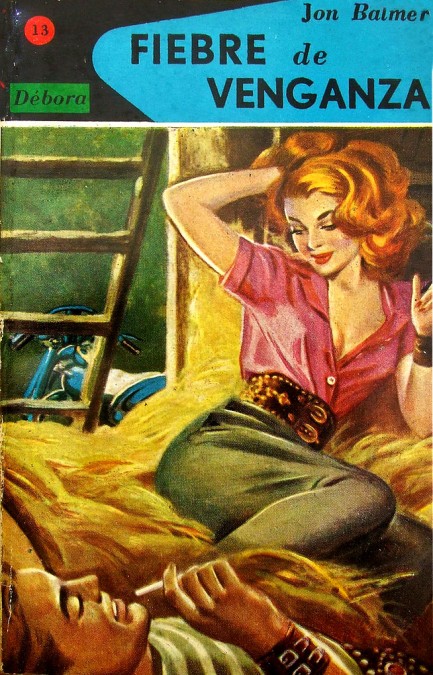 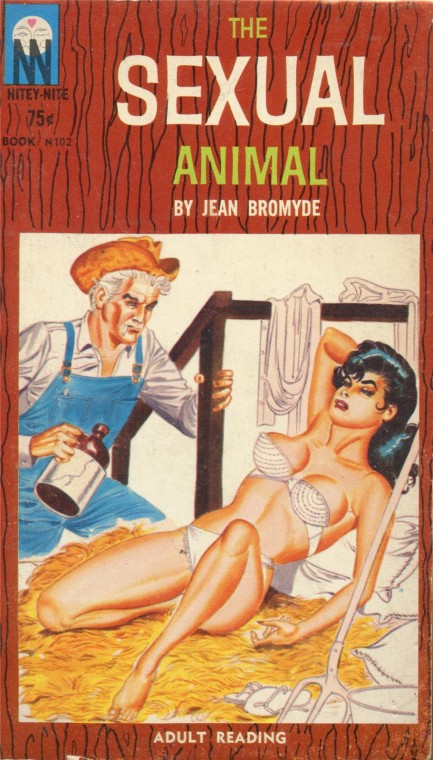 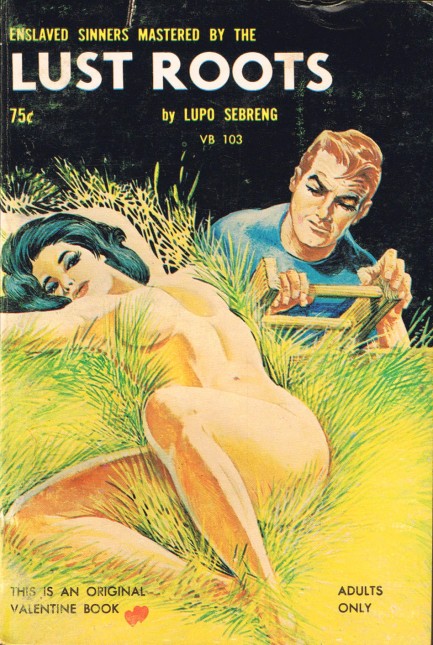 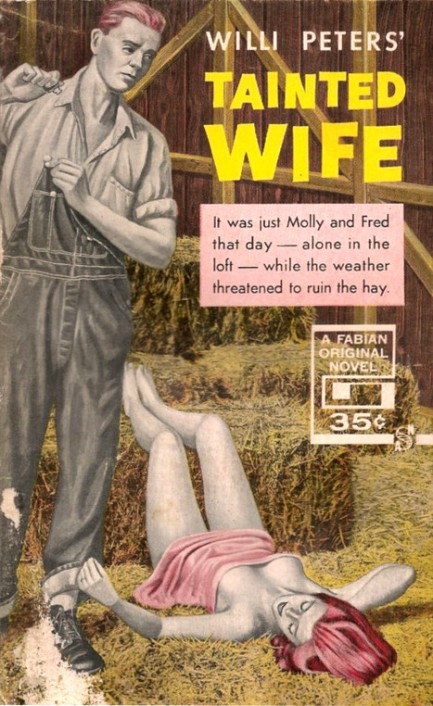 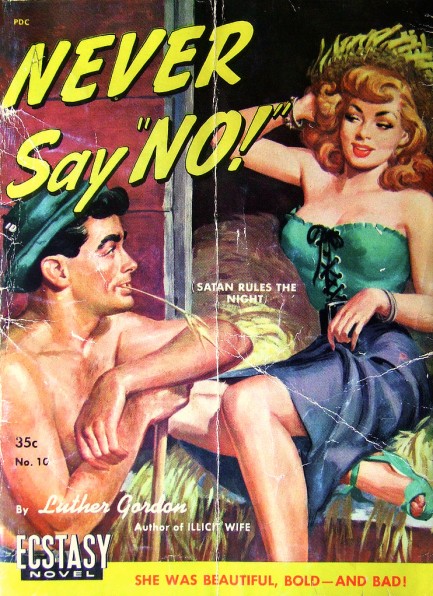 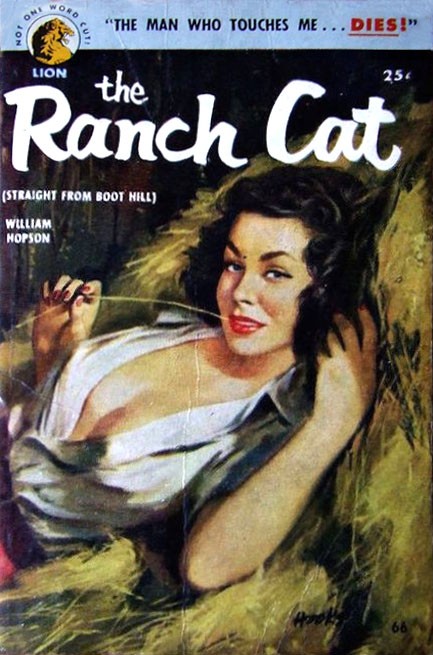 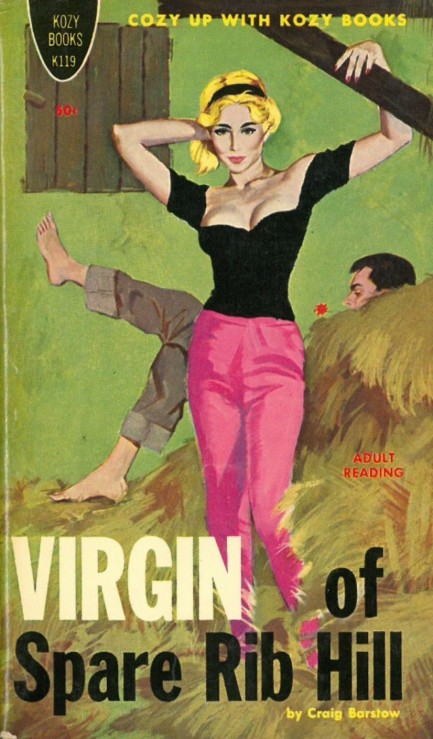 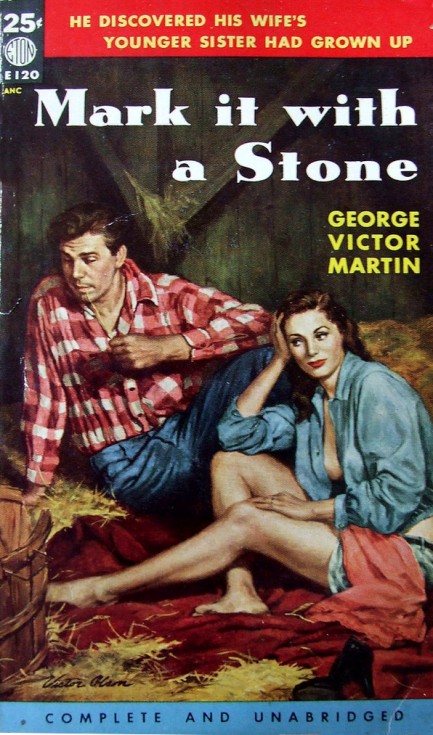 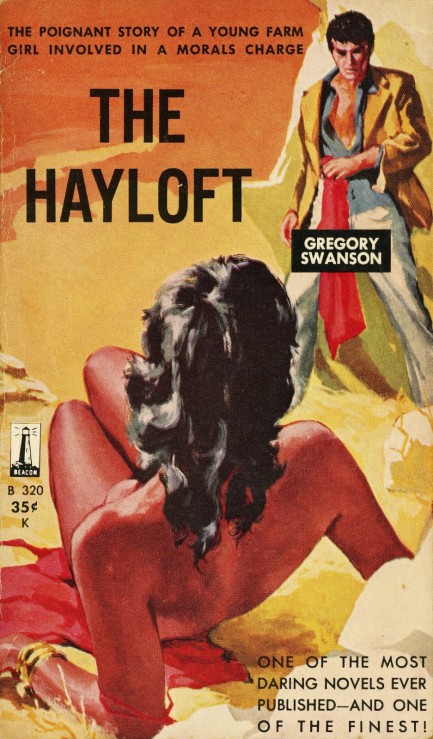 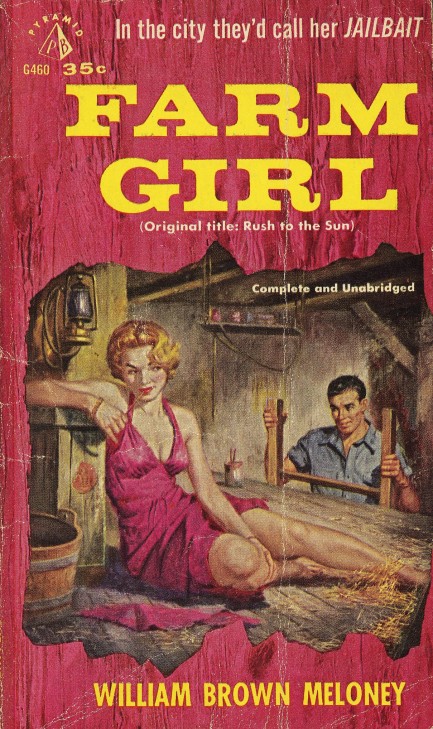 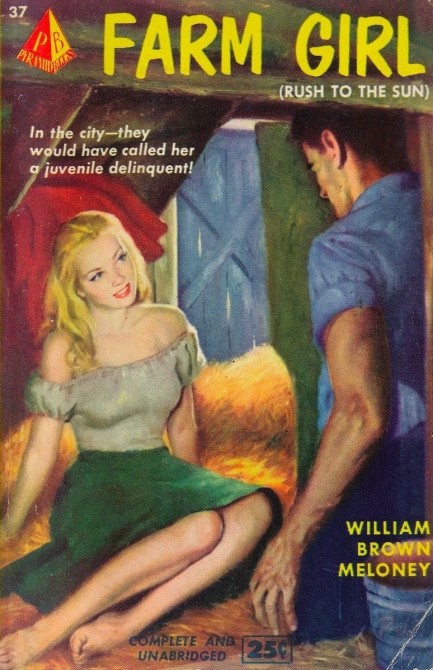
 The ptosis with the mostest. 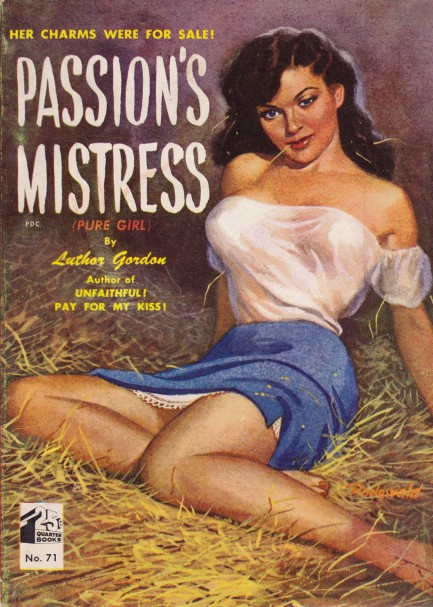
A droopy eyelid is a condition referred to as ptosis, and illustrator Fred Rodewald uses that to great effect on this cover of Passion’s Mistress, written by Luther Gordon (a pseudonym used in this case by James Noble Gifford) for Quarter Books, 1950. Does the character pictured actually have a droopy eye? It would seem not, as both women in the story—“devastating beauty” Olive Haviland and “glamorous actress” Genevieve Gorton—are physically perfect, as only literary characters can be. So credit this quirky eye thing to Rodewald.
|
 |

The headlines that mattered yesteryear.
1927—Mae West Sentenced to Jail
American actress and playwright Mae West is sentenced to ten days in jail for obscenity for the content of her play Sex. The trial occurred even though the play had run for a year and had been seen by 325,000 people. However West's considerable popularity, already based on her risque image, only increased due to the controversy. 1971—Manson Sentenced to Death
In the U.S, cult leader Charles Manson is sentenced to death for inciting the murders of Sharon Tate and several other people. Three accomplices, who had actually done the killing, were also sentenced to death, but the state of California abolished capital punishment in 1972 and neither they nor Manson were ever actually executed. 1923—Yankee Stadium Opens
In New York City, Yankee Stadium, home of Major League Baseball's New York Yankees, opens with the Yankees beating their eternal rivals the Boston Red Sox 4 to 1. The stadium, which is nicknamed The House that Ruth Built, sees the Yankees become the most successful franchise in baseball history. It is eventually replaced by a new Yankee Stadium and closes in September 2008. 1961—Bay of Pigs Invasion Is Launched
A group of CIA financed and trained Cuban refugees lands at the Bay of Pigs in southern Cuba with the aim of ousting Fidel Castro. However, the invasion fails badly and the result is embarrassment for U.S. president John F. Kennedy and a major boost in popularity for Fidel Castro, and also has the effect of pushing him toward the Soviet Union for protection.
|

|
|

It's easy. We have an uploader that makes it a snap. Use it to submit your art, text, header, and subhead. Your post can be funny, serious, or anything in between, as long as it's vintage pulp. You'll get a byline and experience the fleeting pride of free authorship. We'll edit your post for typos, but the rest is up to you. Click here to give us your best shot.

|
|
























